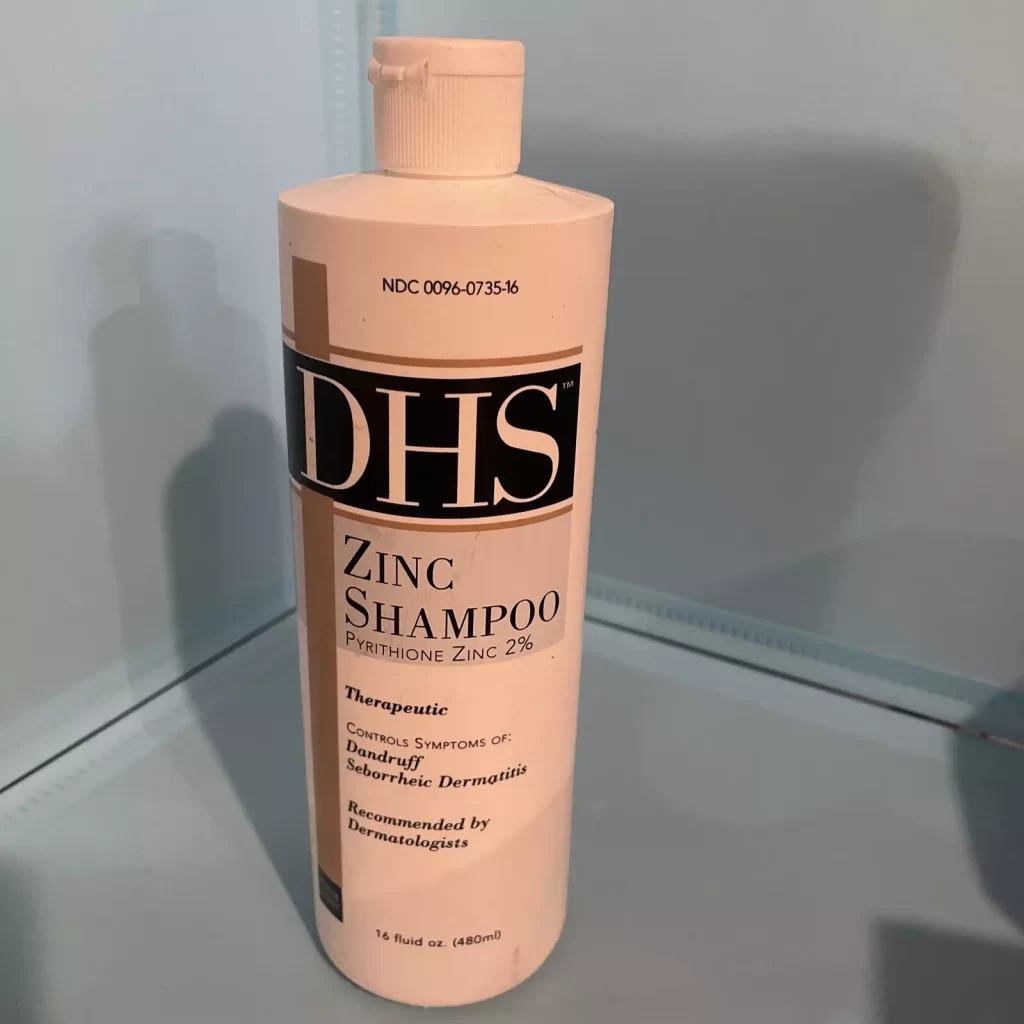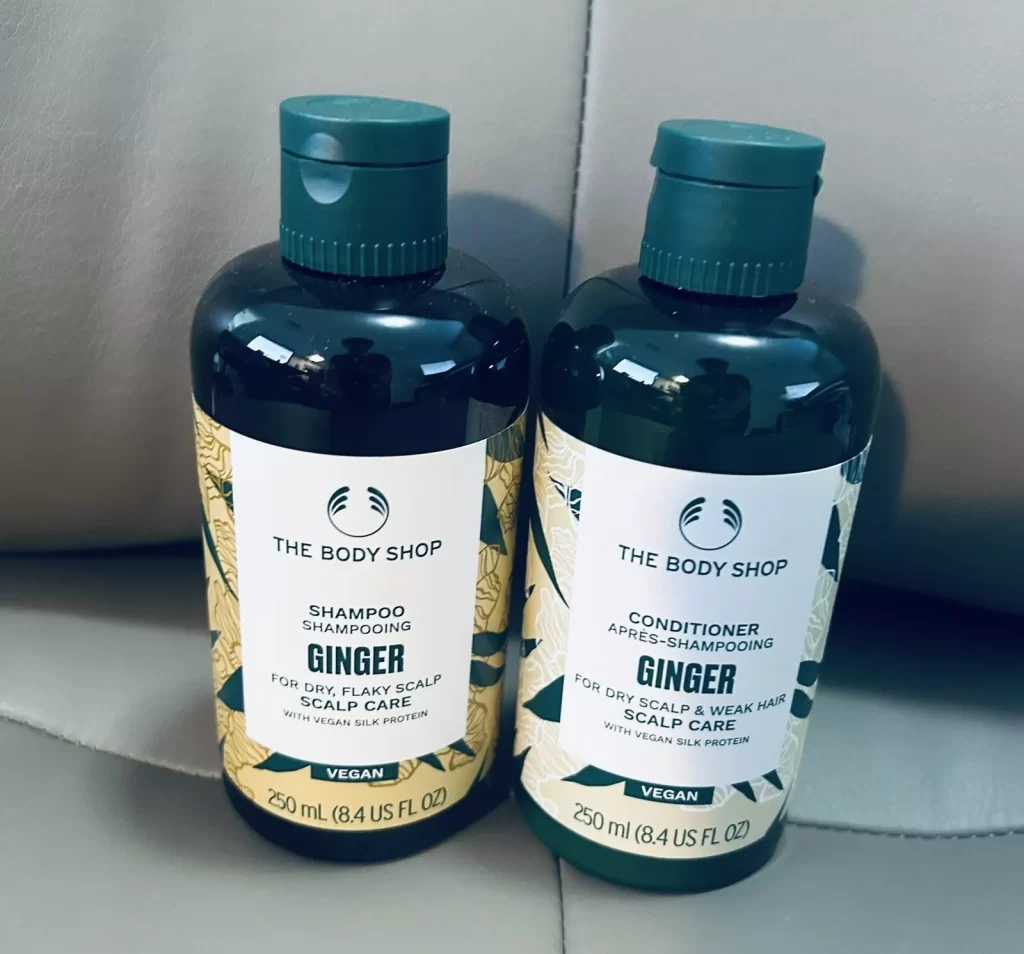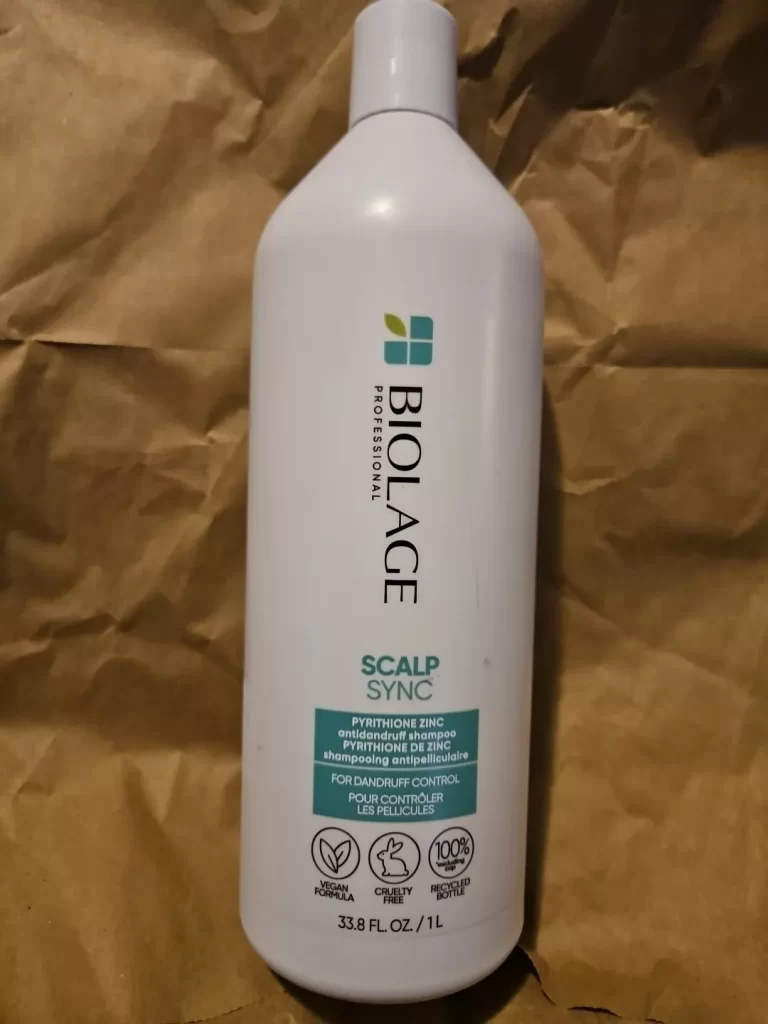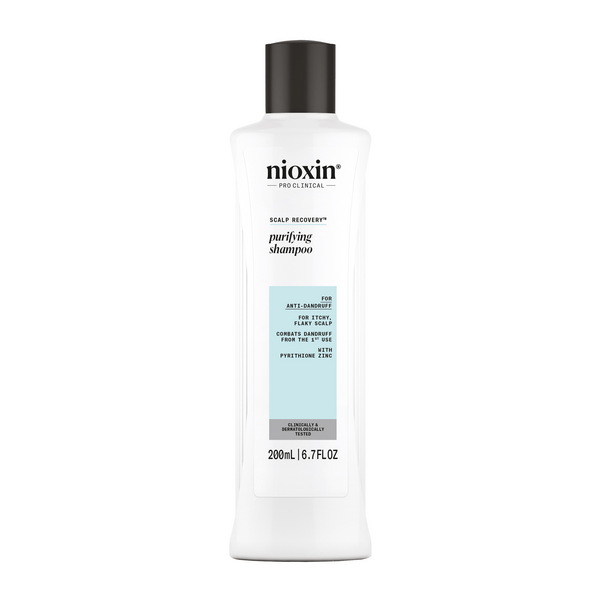It’s hard to tackle a problem like seborrheic dermatitis when you’re not armed with the right information. I’ve been there myself—dealing with the flaky scalp, the itching, and all the frustration that comes with it. The truth is, seborrheic dermatitis, which is a type of eczema that affects the scalp (and sometimes other areas of the body), doesn’t have a known cause, but thankfully, I found that there are products designed specifically to help with the symptoms.
I’ve tried quite a few products in the past, and today I want to share my insights on some of the best shampoos that can really help manage seborrheic dermatitis. I know it can be overwhelming trying to figure out which one will work best for you, but I’ve been through the process and can help point you in the right direction.
Before you buy, there are a few things to keep in mind when selecting a shampoo for seborrheic dermatitis. Let me walk you through some of the most important considerations that I’ve found useful.
5 Things to Consider When Buying a Shampoo for Seborrheic Dermatitis
Seborrheic dermatitis isn’t easy to get rid of, but it can definitely be managed with the right products. From my experience, here’s what I suggest looking at before making a purchase:
1. Ingredients
The ingredients in the shampoo are the most important factor. When I was choosing shampoos, I looked for specific active ingredients that are known to help control the symptoms of seborrheic dermatitis. Here are some key ones to look for:
- Ketoconazole: I’ve found ketoconazole to be incredibly effective in treating dandruff and seborrheic dermatitis. It’s a go-to ingredient because it inhibits fungal growth on the scalp.
- Selenium Sulfide: This targets the yeast responsible for the flaking and irritation. When I was dealing with some of the worst flare-ups, selenium sulfide really helped soothe my scalp.
- Pyrithione Zinc: Another great ingredient that reduces bacteria on the scalp, which can help with itching and inflammation.
- Salicylic Acid: This helps break down the scales on the scalp and was a lifesaver for me when I needed to control the scaling quickly.
- Coal Tar: I’ve used a couple of products with coal tar, and while it’s strong, it definitely helps reduce inflammation and fungal growth.
2. Natural Ingredients
If you prefer something more natural, which I’ve tried during more sensitive times, there are some gentler options that still pack a punch. For example:
- Coconut Oil: I’ve used coconut oil to add moisture back to my scalp, and it has great antifungal properties.
- Apple Cider Vinegar: It’s a bit of a DIY remedy, but it’s great for shedding dead skin cells.
- Tea Tree Oil: When I was dealing with more irritation than usual, tea tree oil helped a lot because of its anti-inflammatory properties.
- Raw Honey: I’ve tried using raw honey as well. It’s super soothing and moisturizing, which my scalp definitely appreciated.
3. Talk to Your Doctor
If you’re unsure, or if over-the-counter products haven’t given you the relief you need, don’t hesitate to talk to your doctor. I’ve done this myself when I needed stronger treatment, and it really made a difference.
Table of Contents
4. Usage
Some shampoos need to be used daily, while others are only needed once or twice a week. When I was going through a particularly bad phase, I stuck with twice-weekly treatments, but I also found shampoos that were gentle enough to use daily. Always check the label to see what works best for your routine.
5. Scent
Let’s be honest—no one wants a shampoo that smells like medicine, especially when you’re using it regularly. I was pleasantly surprised by how many of these medicated shampoos actually have fresh, subtle scents that don’t overpower.
Now, let’s dive into my top recommendations.
The 7 Best Shampoos for Seborrheic Dermatitis
1. Nizoral A-D Anti-Dandruff Shampoo

Best features:
- Proven to fight dandruff
- Contains ketoconazole
- No need for daily use
I’ve had amazing results with Nizoral A-D, and I can confidently say it’s one of the most effective shampoos for seborrheic dermatitis out there. What sets it apart is the 1% ketoconazole solution, which targets the root cause of dandruff and the flaking associated with seborrheic dermatitis.
I love that you only need to use it twice a week—this was a game-changer for me. I didn’t need to constantly worry about washing my hair every day, yet I still saw great results.
One of the things I appreciated most about Nizoral A-D is how gentle it is despite being so effective. Even after I used it for a few weeks straight, my hair wasn’t left dry or brittle. Plus, it works well with color-treated or chemically-processed hair, which is a bonus.
And if you’re worried about that typical “medicated shampoo” smell, Nizoral A-D pleasantly surprised me with its fresh scent.
Pros:
- It targets the source of dandruff and seborrheic dermatitis effectively.
- A little goes a long way—just twice a week is enough.
- Gentle on hair, even color-treated or processed hair.
Cons:
- Some people (myself included, occasionally) experience a bit of dryness, but pairing it with a good conditioner helps a lot.
Bottom Line:
Nizoral A-D is a top choice if you’re dealing with seborrheic dermatitis or stubborn dandruff. It worked wonders for me, and I’d recommend it to anyone looking for a reliable solution.
2. DHS Zinc Shampoo

Best features:
- Dermatologist-recommended
- Soothes irritated skin
- Provides relief from itching and flaking
Overview
DHS has a reputation for producing high-quality, innovative grooming products, and their Zinc Shampoo is no exception. When I was dealing with intense irritation and flaking, this shampoo became a game-changer for me. It’s formulated with 2% Pyrithione Zinc, an ingredient known for its ability to combat yeast, the common culprit behind many scalp issues, including seborrheic dermatitis.
I was pleasantly surprised by how well it calmed my irritated skin, providing relief from itching and significantly reducing the flaking. Not only that, but I also noticed that it helped condition and heal my hair, making it look healthier overall.
What’s great is that it’s suitable for all skin types, so if you have sensitive skin like I do, you won’t need to worry about any burning or irritation. The only drawback for some might be its smell—some people find it less than appealing. However, for me, the results were well worth tolerating the scent.
Pros:
- Effectively tackles a wide range of scalp issues, not just seborrheic dermatitis.
- Safe for all hair and skin types, making it a versatile option.
- Helps to condition and restore hair health.
Cons:
- The scent might not be for everyone.
Bottom line
DHS Zinc Shampoo is a fantastic choice if you’re struggling with seborrheic dermatitis or any other scalp condition. It’s affordable, effective, and leaves your hair looking and feeling healthier.
3. Maple Holistics Pure Tea Tree Shampoo

Best features:
- Utilizes tea tree oil for scalp health
- All-natural ingredients
- Gentle, nourishing formula
Overview
When I wanted a more natural approach to treating my seborrheic dermatitis, I gave Maple Holistics’ Pure Tea Tree Shampoo a try, and it’s now one of my favorites. Maple Holistics is known for their holistic and cruelty-free products, and this shampoo lives up to that reputation. It’s filled with tea tree oil, a powerful natural ingredient that targets dandruff and irritation.
Tea tree oil is a powerhouse—it fights dandruff, soothes itching, and has antifungal and antibacterial properties that prevent flakes from returning. I found that it not only helped with the itching but also left my scalp feeling refreshed and clean.
Besides tea tree oil, this shampoo contains other beneficial essential oils like argan oil, jojoba oil, rosemary oil, and lavender oil. These ingredients work together to nourish the scalp and promote healthy hair growth. For instance, argan oil is packed with vitamin E, an antioxidant that protects against daily damage, while jojoba oil offers excellent moisturizing properties, which my hair and scalp really appreciated.
The scent of this shampoo is light and botanical, a pleasant change from the harsher medicinal smells of some other products I’ve used. It has a mild lather that doesn’t strip the hair of natural oils, which I liked because it left my hair feeling hydrated and soft, not dry or brittle.
Pros:
- Maple Holistics’ natural approach ensures the shampoo is packed with beneficial oils and free from harsh chemicals.
- It effectively removes excess oil without leaving hair dry or dull.
- A blend of essential oils supports overall hair and scalp health.
Cons:
- Those sensitive to fragrances might find the scent a bit much, even if it’s naturally derived.
Bottom line
If you’re looking for a natural solution that effectively treats seborrheic dermatitis while keeping your hair healthy and hydrated, Maple Holistics Pure Tea Tree Shampoo is an excellent choice.
4. Puriya Sulfate-Free Tea Tree Oil Shampoo

Best features:
- Hydrates dry scalp
- Free from harsh chemicals
- Doesn’t leave an oily feeling
Overview
When I first tried Puriya’s Tea Tree Oil Shampoo, I was looking for something that could tackle seborrheic dermatitis without relying on harsh chemicals, and this shampoo delivered. Instead of packing the formula with unnecessary additives, Puriya has filled it with an herbal blend of botanicals that nurture the hair and scalp.
The ingredients are simple yet effective. Tea tree oil, rosemary, arnica, and sage work together to fight off the symptoms of seborrheic dermatitis while soothing the scalp and hydrating the hair. What really stood out to me was that it left my hair feeling clean without any heavy, oily residue—something that’s hard to find in moisturizing shampoos.
What’s in it:
- Tea tree oil: Known for its antifungal and antimicrobial properties, tea tree oil is excellent for combating the fungus that causes dandruff and seborrheic dermatitis. It also works to clear hair follicles, allowing for healthier hair growth.
- Rosemary oil: A key ingredient for improving blood circulation to the scalp, rosemary oil strengthens hair follicles and can even prevent premature graying.
- Arnica oil: This oil soothes the scalp, reduces inflammation, and helps clear excess oils and bacteria that can exacerbate scalp conditions.
- Sage: Rich in vitamins and minerals, sage improves scalp health and offers anti-fungal benefits.
Beyond the stellar ingredient list, I loved how well this shampoo hydrated my dry scalp while repairing brittle, damaged hair. It’s gentle enough for daily use and works on all hair types, including children’s hair. Plus, it’s sulfate- and paraben-free, so I didn’t have to worry about the potential side effects associated with those chemicals.
Pros:
- Naturally hydrates and soothes the scalp without harsh chemicals.
- Safe for daily use and all hair types, including kids.
- Leaves hair feeling clean without an oily residue.
Cons:
- It’s more expensive compared to other seborrheic dermatitis shampoos.
Bottom line
Puriya’s Tea Tree Oil Shampoo is ideal if you’re looking for a sulfate-free, hydrating solution to seborrheic dermatitis. It offers superior moisture and relief without leaving your hair oily or weighed down.
5. The Body Shop Ginger Scalp Care Shampoo

Best features:
- Gently removes dandruff
- Soothes the scalp
- May help stimulate hair growth
Overview
I’ve always been a fan of The Body Shop’s products, so I had high hopes for their Ginger Scalp Care Shampoo, and it did not disappoint. Featuring Sri Lankan ginger essential oil, this shampoo effectively tackles dandruff and seborrheic dermatitis symptoms while leaving my hair feeling soft and healthy.
Ginger essential oil is a natural powerhouse. It helps reduce scalp infections and dandruff, promotes hair growth, and strengthens hair strands. What I noticed right away was the calming effect it had on my scalp. The itching was reduced significantly, and it felt like my scalp’s natural moisture balance was restored. This shampoo also works well to condition the hair, making it smooth and shiny.
The formula includes other beneficial ingredients like birch bark, white willow extracts, and honey. Honey, sourced from a fair-trade group in Ethiopia, adds extra moisturizing properties, which was great for keeping my scalp hydrated without the grease. Birch bark and white willow extracts offer additional anti-inflammatory and soothing properties, making this shampoo gentle yet effective.
Pros:
- All-natural formula with no parabens or sulfates.
- Gently treats dandruff while hydrating and soothing the scalp.
- Packed with unique ingredients like ginger and honey that improve overall hair health.
Cons:
- Not ideal for color-treated hair.
Bottom line
The Body Shop’s Ginger Scalp Care Shampoo is a gentle yet powerful solution for seborrheic dermatitis. If you prefer a natural approach with ingredients like ginger and honey, this is a great pick for soothing your scalp and eliminating dandruff.
6. Biolage Scalpsync Anti-Dandruff Shampoo

Best features:
- Relieves scalp irritation
- Effectively controls dandruff
- Provides a refreshing, cooling sensation
Overview
When I first tried Biolage Scalpsync Anti-Dandruff Shampoo, I was intrigued by its use of mint as a primary ingredient. I quickly found out that mint, with its anti-bacterial and anti-inflammatory properties, is a game-changer for scalp health. This shampoo is one of my top recommendations for those dealing with seborrheic dermatitis.
Mint is rich in beta carotene, which the body converts to vitamin A—a crucial component for cell growth, including hair cells. It also prevents dandruff by keeping the scalp hydrated, a key benefit for anyone who experiences flaking due to dryness. When I applied the shampoo, the mint provided a soothing, cooling sensation that left my scalp feeling refreshed.
Another powerful ingredient in this shampoo is pyrithione zinc, which is known for reducing scalp bacteria and fighting dandruff. Biolage has done an excellent job in combining these elements to create a formula that targets the core issues of seborrheic dermatitis. It effectively cleanses the scalp, removing excess oil and impurities, while nourishing the hair to keep it healthy and vibrant.
I found this shampoo particularly useful when paired with Biolage’s Scalpsync Conditioner, as the combination offers enhanced results, leaving my hair feeling clean, smooth, and manageable. Plus, it’s safe for all hair types, including color-treated hair, making it a versatile option for anyone.
Pros:
- Contains mint leaf extract, which soothes the scalp and combats bacteria.
- Leaves a refreshing, cool sensation after each wash.
- Safe for all hair types, including those with color-treated hair.
Cons:
- Contains sulfates and parabens.
Bottom line:
Biolage’s Scalpsync Anti-Dandruff Shampoo is a solid choice for anyone struggling with seborrheic dermatitis. It offers a refreshing, effective cleanse while being suitable for all hair types.
7. Nioxin Scalp Recovery Medicated Cleanser Shampoo

Best features:
- Effectively eliminates dandruff
- Soothes and calms the scalp
- Relieves inflammation
Overview
If you’re looking for a medicated shampoo that’s effective in tackling seborrheic dermatitis, Nioxin’s Scalp Recovery Medicated Cleanser Shampoo is a great option. I’ve used it during flare-ups, and it provided quick relief from itching and flaking.
Nioxin’s formula is a blend of powerful ingredients, including pyrithione zinc, an FDA-approved active ingredient commonly used for treating dandruff and seborrheic dermatitis. It also contains green tea extract, which has anti-inflammatory properties that soothe the scalp and reduce redness. What I appreciated most was its ability to balance and restore the scalp’s natural health, leaving my hair feeling soft and manageable.
Another highlight is its inclusion of minerals like Epsom salt, which exfoliates and soothes the scalp, and smithsonite, an astringent that aids skin recovery. The addition of peppermint, mint leaf oil, and tea leaf extract creates a calming effect, and the shampoo’s light, pleasant scent is a refreshing change from other medicated products.
While it’s a bit on the pricier side, the results it delivers make it worth the investment if you’re dealing with persistent seborrheic dermatitis symptoms.
Pros:
- Pleasant, light scent that’s not overwhelming.
- Restores the scalp’s natural balance and calms irritation.
- Effectively soothes the scalp and reduces inflammation.
Cons:
- More expensive than some other options.
Bottom line:
Nioxin’s Scalp Recovery Medicated Cleanser Shampoo offers an effective solution for seborrheic dermatitis and dandruff. Its well-rounded formula targets symptoms quickly, making it a reliable choice.
7 Tips for Using Seborrheic Dermatitis Shampoo
Seborrheic dermatitis is a recurring condition, but with the right approach, its symptoms can be managed. Here are some tips I’ve learned through experience that can help maximize the effectiveness of seborrheic dermatitis shampoos:
- Use Over-the-Counter Shampoos Frequently
OTC shampoos can be effective for treating seborrheic dermatitis. I’ve found that using them daily at the start can help manage symptoms more effectively. Make sure to let the shampoo penetrate the scalp by leaving it on for a few minutes before rinsing. - Follow Your Doctor’s Instructions
If your doctor prescribes a medicated shampoo, it’s essential to follow their instructions carefully. The usage may vary based on your condition’s severity, so stick to the recommended plan for the best results. - Alternate with Regular Shampoos
I’ve had success alternating between medicated and regular shampoos. This approach can prevent the scalp from becoming overly sensitive and allows for a gentler routine while still managing symptoms. - Ease Off When Symptoms Improve
Once you start seeing results, you might reduce the frequency of use for medicated shampoos. For example, products like Nizoral A-D are often effective with just a couple of uses per week. - Avoid Styling Products When Possible
While treating seborrheic dermatitis, it’s a good idea to skip styling products like sprays and gels. Products containing alcohol can worsen symptoms, so it’s best to avoid them during treatment. - Use Oils to Remove Flakes
Hot oil treatments using olive or mineral oil can help remove scales and flakes. I apply the oil as a pre-shampoo treatment, using a processing cap for 10-15 minutes before rinsing it off. Just make sure to wash thoroughly; leftover oil can irritate the scalp. - Use a Conditioner
After shampooing, a deep conditioner can help seal in moisture, making hair softer and easier to manage. This step is particularly helpful if your shampoo routine leaves your scalp feeling a bit dry.
How We Chose These Products
In selecting the best seborrheic dermatitis shampoos, I focused on products with proven ingredients like ketoconazole and pyrithione zinc. I also paid attention to shampoos featuring natural components such as tea tree and peppermint oil for their anti-inflammatory benefits. Reputation, customer reviews, and affordability also played key roles in the selection process to ensure I recommended a well-rounded list suitable for different budgets and needs.
Frequently Asked Questions (FAQ)
- What is seborrheic dermatitis?
Seborrheic dermatitis is a skin condition that mainly affects the scalp, causing red skin, scaly patches, and dandruff. It may also impact other oily areas, like the eyebrows, face, and chest. - How is seborrheic dermatitis treated?
Treatment options include medicated shampoos, creams, and lotions designed to reduce inflammation and loosen scales. Some people also find relief with home remedies. - What causes seborrheic dermatitis?
The exact cause is unknown, but it could be linked to yeast in the skin’s oil secretion or an immune system irregularity. - How often should I wash my hair if I have seborrheic dermatitis?
Frequent washing is often recommended at the start of treatment. Medicated shampoos can be harsh, so it’s important to adjust frequency based on results.
Conclusion
Managing seborrheic dermatitis is challenging, but with the right shampoo, it’s possible to keep symptoms under control. I hope this list of effective shampoos helps you find relief and maintain a healthy scalp.
If you’ve used any of these shampoos or have other recommendations, feel free to share your experiences. I’d love to hear from you!

